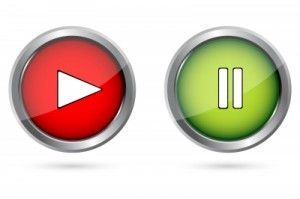2 Minute Lessons
Did you know that you can use the continuous aspect, in the past or present, to express irritation?
For example, normally we say:
As a boy, Frankie was annoying when he was tired.
Mary always loses things.
What word, if any, goes in each space? We’re meeting up __ 5:00 __ Tuesday, so don’t be late! ___ next week, I’m flying to Australia. I can’t wait to see a kangaroo! My sister called me __ Saturday morning, and woke me up! I graduated college __ 2005, and started working __ New York […]
Fix the mistakes
I like reading a lots of different kinds of books.
Martin works lot of hours during the week.
I used to go to the beach a lot of, but now I never go.
Harry has decided to retire. He’ll have a lot time on his hands now!
“Do you enjoy shopping?” “A lot of!”
Put the words in the right order
cake / everyone! / giving / made / much / She / so / to / too / yesterday, / she’s / a little
has / last / lottery / Michelle / money! / of / plenty / she / so / the / won / year,
a / bad / good / is / much / of / thing / Too
box / can / heavy— / help / is / it? / me / too / This / with / you
Don’t worry! food / for / have / of / the / picnic! / plenty / We
Choose the correct form of the verb!
Jenny isn’t used to write / to writing on a computer keyboard yet.
Marvin and I love to swim / to swimming at the lake.
You really must to stop / stop eating so much pizza—you’re putting on weight!
George and Martha both stopped to smoke / smoking yesterday, and now they’re ready for a divorce!
In romantic relationships, there are different names for the people in them depending on how close they are:
Boyfriend and girlfriend are those whose relationships are still shiny and new. Once people recognize them as “going out”, the two become a couple, and stay that way until they break up.
Then, if the relationship grows closer, but they don’t have a formal ceremony, they become partners, and usually refer to the other person as “my partner” or “my significant other”.
“A lot of” or “lots of” can be used to substitute “much” or “many”. It marks a large, unidentified amount.
She has many/a lot of ‘friends’, but only a few close friends.
I don’t have much/lots of money on me—I’d better go to the bank.
“A lot” or “lots” can also be an adverb, but without the ‘of’!
Small numbers can sometimes be a problem for students. How do you say those darn things? It’s simple: – For decimals, just say each digit in the series. The period (NOT the comma!) is read “point”. The number 0 is read “zero”, “naught”, or “oh”. 1.23 is “one point two three” 75.09 is “seventy-five […]
These two words may seem like they have similar meanings, but they are not actually synonyms.
“To be” is one of the most common words in English. It has two main functions.
“To Stay”, on the other hand, means “to remain in one place” or “to temporarily reside”:
Put the words in the right order. Make sure to put the adverb in the right spot!
at / I /mall / shopping / the / went / Yesterday
always / cinema / has / Jeffery / loved / the
do / start / usually / When / work / you /?
almost / I / never / TV / watch










